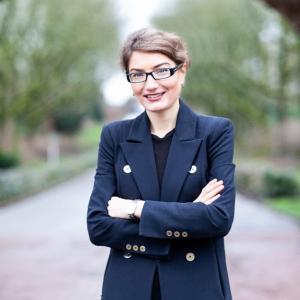Expert panel
Details
The discussion examined the role the EU and its Member States still play on the ground in Afghanistan and looked for ways how the EU and other international actors can work together to improve the livelihood of the Afghan people and to secure the future of the next generations in a sustainable way.
Wednesday, 21st June, 10:00-13:00
Welcome remarks
Denis Schrey, Head of Konrad-Adenauer-Stiftung (KAS) Multinational Development Policy Dialogue, Brussels
Panel discussion:
Moderated by Lin Goethals, Director EIAS
Dr. Ellinor Zeino, Member of the German Bundestag Study Commission on Afghanistan and Director of the KAS Regional Programme Southwest Asia (based in Tashkent, previously based in Kabul)
Sulaiman Bin Shah, prev. Deputy Minister for Industry & Commerce of Afghanistan, Kabul
Deren Derya, Head of Division for Afghanistan and Pakistan, European External Action Service (EEAS), Brussels
Q&A with the audience
Networking Lunch
On 15 August 2021 the Taliban overthrew the Islamic Republic of Afghanistan by taking control over Kabul and establishing the new Islamic Emirate of Afghanistan. The US, NATO and its allies withdrew their troops from Afghanistan after almost 20 years, while most foreign embassies, relocated outside Afghanistan. The EU decided to remain engaged and re-established a presence in January 2022. Nearing two years since the Taliban take-over with little positive progress to report, Afghanistan has moved down the political agenda and donor fatigue has set in. At the same time concerns and fear of instability, terrorism and possible spill-over effects to the region remain.
Afghanistan has long been overly relying on external aid. In 2018 it was estimated to have drawn 40% of its GDP from international aid. Over the past 20 years also the EU has provided Afghanistan with more than 4 billion EUR in development aid, making it the largest beneficiary of development assistance in the world. After the takeover of the Taliban in 2021, the EU has continued funding humanitarian assistance and basic needs and livelihood support, while ending development assistance. European companies – given the fragile economic situation and absence of a clear legal framework – are not inclined to invest. Other international actors like India, China, and Pakistan are more willing to take the risk in trade and investments in the country despite the Taliban ruling. Afghanistan has rich reserves in mineral resources, rare earths and oil, while the development of the infrastructure required for their extraction needs massive investments that Afghanistan cannot provide itself, leaving a major untapped potential which might be filled by regional powers such as Russia, Iran, China and Pakistan.
Apart from internal and external opposition, the Taliban lack an effective governance system at the local level and the capacity to manage diversity and difference of opinion at the societal level, being unable to adapt their ideals to the modern nation state and its functions, as well as to become recognized internationally and obtain domestic legitimacy. Ultimately, the Taliban will need foreign economic support to sustain Afghanistan´s health, agriculture and education systems, local governance and other public sector programs.









